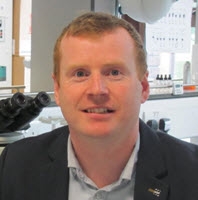Over the last 4 weeks, I had an enriching experience in China, a vast country with secular traditions, delicious fresh foods, and modern ways of living. In Beijing, I was the co-chair of the VII International Symposium on Phytochemicals in Medicine and Food, where I met several colleagues from different parts of the world, such as Argentina, Turkey, the USA, Italy, Portugal, Spain, the UK, and many others. Later, I visited my collaborators at the Chinese Institute of Apicultural Research (CAAS - https://www.caas.cn/en), the Tea Research Institute of the Chinese Academy of Agricultural Sciences (TRI CAAS - https://lnkd.in/e_vsshEh), Dalian Polytechnic University, and the International Joint Laboratory on Tea Chemistry and Health Effects, and the State Key Laboratory of Tea Plant Biology and Utilization at Anhui Agricultural University.
The
infrastructure and support for Bsc, Msc, and PhD students are superb, and the
government invests billions in education, science, and technological
advancements. All MSc students receive a 3-year training before their PhD
studies, thoroughly preparing them to engage at a very high scientific level.
Extensive lab-based classes are offered from the BSc level giving hands-on lab
experience to students. The classrooms, student accommodations, and
laboratories have the most recent top-notch technologies. Big companies, such
as Agilent and Bruker, lend some equipment to the PIs. Technicians, assistant
and associate professors help supervise and guide BSc/MSc/PhD students in their
routine analyses. PhD students help with the MSc and BSc students’ work and are
responsible, together with the PI, for validating the methods ranging from
Analytical Chemistry to Biomolecular Sciences. Experimental stations are part
of the BSc and research facilities, making collaborating with agro-food
companies easy and translational.
Regional,
State and University funding opportunities are vast, and companies fund part of
the work conducted at PhD and Postdoctoral levels. So, it is unusual to see any
hurdles related to financial support. It’s no wonder 50% of the scientific
outputs, including Nobel prizes, come from China.
During
my visit, I visited two medium-sized tea factories in Hangzhou and Hefei and
prepared green tea by picking the leaves, inactivating PPOs, rolling, and
drying the leaves. This is a unique opportunity to see all the tea leaf
processing steps.
One
downside of the Chinese working mode is that they often work >50h/week, and
there is considerable pressure on MSc and PhD students because receiving
governmental funding to cover stipends depends on research outputs, such as the
number of published papers.
Some
colleagues question the validity of experiments conducted in China, and some
have extreme opinions about collaborative projects between the EU and China.
What I see every time I come to China is different from some colleagues’ views:
the collaborators I have worked with are dedicated, hard-working, optimistic,
proactive, and very helpful in providing the infrastructure, equipment, and
resources required for some analyses. From what I have seen in different
Chinese universities and research institutes, I feel that Food Science,
Technology, and Nutrition researchers are well prepared to face the challenges
from farm to fork & beyond. More importantly, this visit was paramount when
criticisms arose: the collaboration with Chinese partners has provided funds
(one research project from 2019-2021 – €265.000, and several publications as well as book
chapters from 2016-2023.
Below
are some pictures of my official visit to the International Joint Laboratory on
Tea Chemistry and Health Effects at Anhui Agricultural University (Pictures 1
and 2), the labs from TRICAAS (picture 3), and a visit the experimental tea
plantations and factories (pictures 4, 5, and 6), a discussion about recent
topics in tea science/technology and a presentation of our taught MSc courses
at Dalian Polytechnic University (Picture 7), and a visit to Chinese apiaries
in Beijing (Picture 8).


















